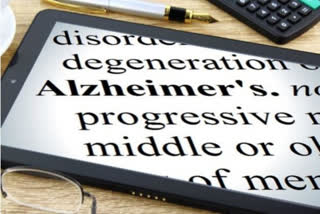Sheffield (UK): A 19-year-old man from China, who has been having memory problems since the age of 17, was diagnosed with dementia, according to a recent case study published in the Journal of Alzheimer's Disease. After conducting a barrage of tests, researchers at the Capital Medical University in Beijing diagnosed the teenager with "probable" Alzheimer's disease. If the diagnosis is correct, he will be the youngest person ever to be recorded with the mind-robbing disease.
The main risk factor for the disease is getting old, which makes this latest case so unusual. The exact causes of Alzheimer's are still largely unknown, but a classical feature of the disease is the build-up of two proteins in the brain: beta-amyloid and tau. In people with Alzheimer's, beta-amyloid is usually found in large quantities outside of neurons (brain cells), and tau "tangles" are found inside axons, the long, slender projection of neurons.
However, scans failed to show any signs of these features in the 19-year-old's brain. But the researchers did find abnormally high levels of a protein called p-tau181 in the patient's cerebrospinal fluid. This typically happens before the formation of tau tangles in the brain. Nearly all cases of Alzheimer's disease in people younger than 30 are due to inherited faulty genes. Indeed, the previous youngest case - a 21-year-old - had a genetic cause.
Three genes have been linked to Alzheimer's disease in the young: Amyloid Precursor Protein (APP), Presenilin 1 (PSEN1) and Presenilin 2 (PSEN2). These genes are involved in producing a protein fragment called beta-amyloid peptide, a precursor to the previously mentioned beta-amyloid.
If the gene is faulty, it can lead to an abnormal build-up (plaques) of beta-amyloid in the brain a hallmark of Alzheimer's disease and a target for treatments such as the recently approved drug lecanemab. People only need one of APP, PSEN1 or PSEN2 to be faulty to develop Alzheimer's disease, and their children have a 50:50 chance of inheriting the gene from them and developing the disease, too.
